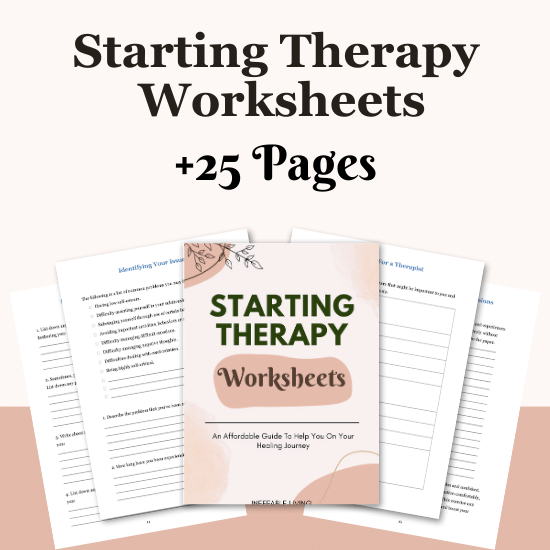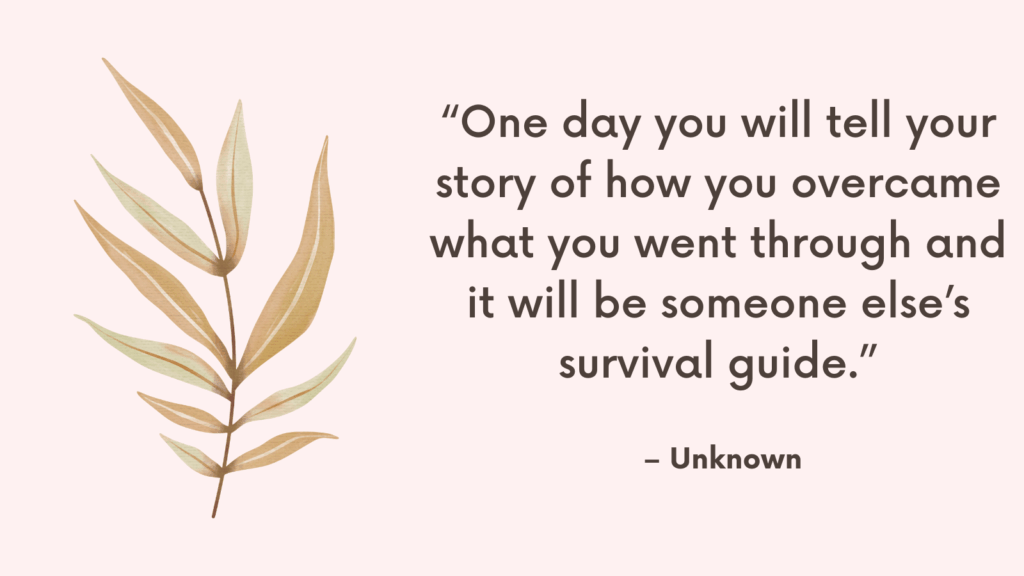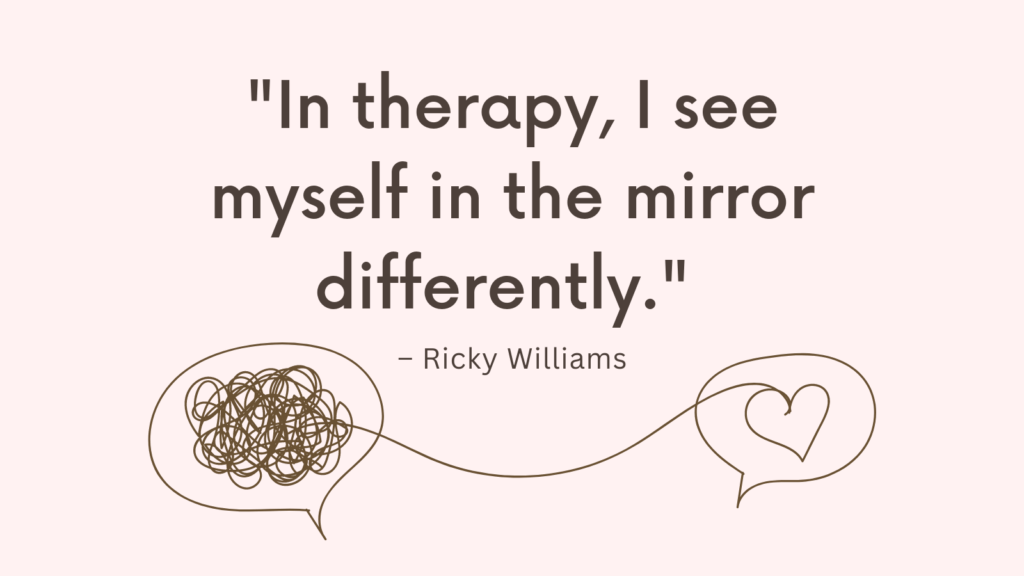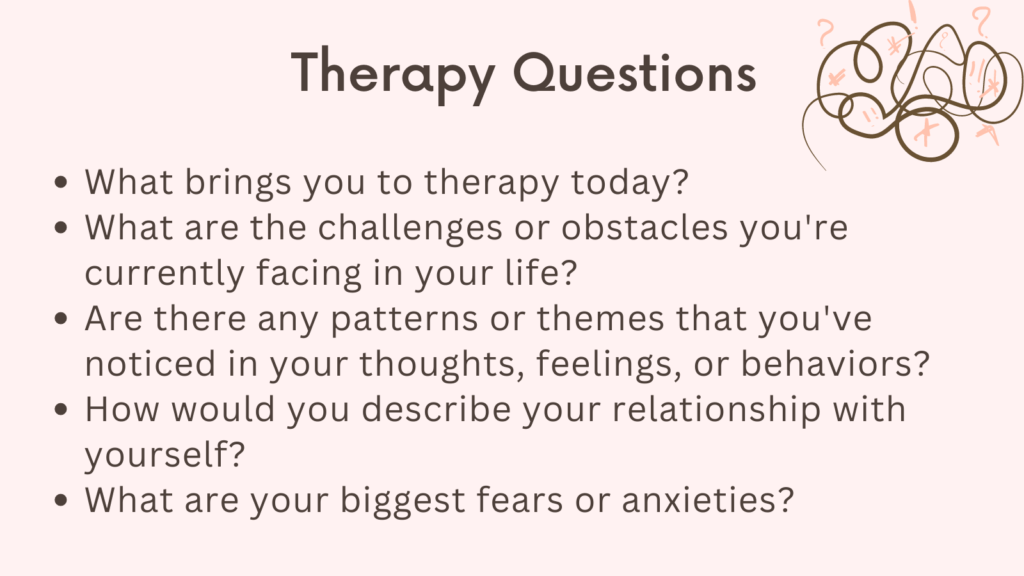Therapy is often described as a safe space to tell your whole truth — but that doesn’t always mean it’s easy, or even clear, what everything includes.
You might wonder: Do I really have to share that memory? That thought? That habit I’m ashamed of?
The short answer: no, you don’t have to tell your therapist everything all at once — but being honest matters. Here’s how to navigate that line with care and self-respect.
The Purpose of Therapy: A Safe Space for Your Truth
Therapy is a structured conversation designed to help you heal, grow, and understand yourself more deeply. Your therapist is not a friend, relative, or judge — they are a trained professional who holds space for your experiences without judgment. The therapy room is, ideally, a place where you can explore the darkest corners of your mind with compassion and support.
That said, telling everything right away can be daunting. And that’s okay.
Related: How to Overcome Fear of Therapy?
Why Telling Everything Can Help You Heal
1. Context Matters for Accurate Help
Therapists make sense of your behavior, thoughts, and emotions based on the information you give them. If key details are left out, their interpretation might be off — which can lead to advice or interventions that don’t quite fit.
2. Relief Through Vulnerability
Many clients find that saying things out loud — things they’ve kept hidden for years — can be deeply relieving. Just naming your truth without judgment can be powerful and freeing.
3. Breaking the Shame Cycle
Shame thrives in silence. By speaking about what feels unspeakable, you shine light on the parts of yourself you’ve disowned. This is often where the deepest healing begins.
Related: What To Talk To Therapist About: Top 35 Topics
4. Therapists Are Trained for the Hard Stuff
You may fear your therapist will think less of you, but therapists are trained to handle trauma, taboo topics, and complex behaviors. They’ve heard it all — and their job is to understand, not to condemn.
5. Faster Progress
The more open you are, the quicker your therapist can get to the root of issues. This doesn’t mean you should rush — but hiding things can create roadblocks to meaningful breakthroughs.
Related: 8 Things to Avoid Telling Your Therapist
When Holding Back Might Be Necessary
While honesty is crucial in therapy, there are some situations where temporarily holding back makes sense.
1. You’re Still Testing the Waters
If it’s your first few sessions and you’re still gauging if this therapist is a good fit, it’s okay to start slowly. Emotional safety builds over time, and you don’t owe your life story on day one.
2. You’re Not Ready Yet
Some memories or emotions are too overwhelming to confront immediately. That’s not avoidance — it’s pacing. A skilled therapist will help you approach these areas when you’re ready, not force you.
3. You Fear Retaliation or Legal Consequences
If you’ve committed a crime, harmed others, or are involved in a legal issue, it’s wise to discuss confidentiality boundaries first. In most countries, therapists are mandated to report certain things (like abuse, harm to self or others). Understanding these limits helps you decide what and when to share.
4. You’re Still Untangling What You Feel
Sometimes you’re unsure how you feel about something — and that’s valid. You can say, “I’m not ready to talk about this yet,” and return when you feel clearer.
How to Navigate Trust Issues in Therapy?
Trust is the foundation of therapy. If you’re struggling with it, here’s how to work through it.
1. Acknowledge the Fear
You can say: “I want to share more, but I’m afraid of being judged.” A good therapist will welcome this and help you process that fear.
2. Ask About Confidentiality Up Front
Know your rights. Ask your therapist what they can and can’t keep private.
3. Use Journaling in Between Sessions
If you’re not ready to speak it, write it. Sometimes reading an entry to your therapist can help bridge the gap.
4. Consider Trauma-Informed Therapy
If you’ve experienced betrayal or abuse, a trauma-informed therapist will be more attuned to your need for safety, pacing, and control.
Related: How to Manage Therapy Hangovers?
What Happens If You Don’t Tell Your Therapist Everything?
You don’t have to be 100 percent transparent all the time. But withholding important details over the long term can affect the quality of your therapy.
- You may stay stuck in loops without resolving core issues.
- You may feel disconnected from your therapist, sensing they don’t “get” you — when they’re actually working from an incomplete picture.
- Your therapist may suggest strategies that don’t work, because they’re based on missing or inaccurate assumptions.
- It can increase your internal conflict: wanting to be helped but feeling unseen or misunderstood.
Therapy is like assembling a puzzle. If pieces are missing, the full picture — your healing — takes longer to complete.
Tips for Being More Honest in Therapy
1. Start By Being Honest About Not Being Honest
Say it out loud: “I’ve been holding back.” “I’m scared to say something.” “I don’t know how to talk about this.” That admission is honesty — and it opens the door to more.
2. Don’t Wait Until You’re “Ready”
You may never feel completely ready to say the hard thing. Say it anyway. Even naming the discomfort — “This is really hard to say” — counts as truth.
3. Practice in Small Pieces
You don’t have to drop the whole story at once. Try sharing one sentence, one moment, one uncomfortable truth. Let it breathe. Honesty builds like a muscle — one rep at a time.
4. Write It Down and Bring It With You
If the words freeze up in the moment, try journaling your thoughts beforehand. You can read it, hand it over, or use it as a prompt to start talking.
5. Let Go of Trying to Be a “Good Client”
You don’t need to be polite, impressive, or put-together. This is your space to be messy, unsure, even contradictory. That’s where the real work lives.
6. Notice When You’re Censoring Yourself
Pay attention to when you pause, change topics, or laugh something off. Ask yourself: What am I afraid will happen if I say the real thing? That’s a clue worth following.
7. Share the Version You’re Embarrassed About
The one you think is “too dramatic,” “too needy,” or “too much.” That’s the version that most needs to be seen — and the one therapy is built to hold.
8. Trust That Your Therapist Can Handle It
You might worry you’ll overwhelm them or be judged. But trained therapists are prepared to sit with big truths. You’re not a burden — you’re a human doing brave work.
9. Be Honest About the Therapy Experience Itself
If something your therapist said didn’t land, or if you’re feeling disconnected, say so. Honest feedback strengthens the relationship — and the healing.
10. Give Yourself Permission to Go Slow
Honesty doesn’t mean rushing your most painful truths. It means being real about where you are — even if where you are is “not ready yet.”

Conclusion
You don’t have to tell your therapist everything to make progress — but the more honestly you engage, the more meaningful the healing becomes. Your secrets aren’t too dark. Your past isn’t too much. When you’re ready to open up, that space will still be there — ready to hold what you’ve carried alone for too long.



